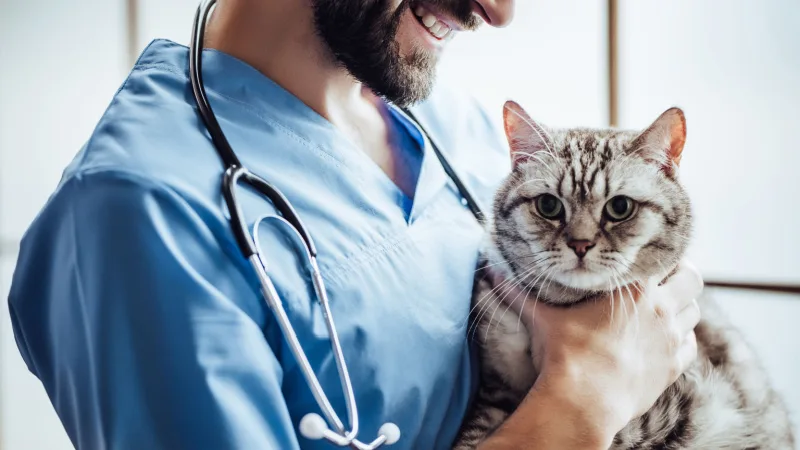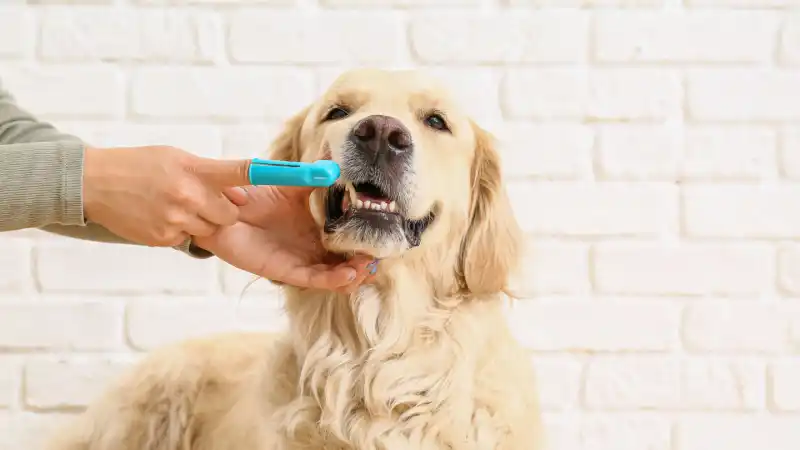Annual Vet Visit Prep for Pet Owners
Your pet's annual vet visit is the perfect time to ask any questions you have about your their health. Come prepared by following our list of tips for pet owners.

Modern life can be busy, so much so that taking your pet to their annual veterinary visit can seem like an inconvenient task. Scheduling the appointment, loading your pet into the car, driving to the vet’s office, checking-in, and sitting in the waiting room can feel like an eternity.
With all the effort it takes just to get there, it makes sense to spend a little time preparing for the appointment so that you and your pet get the most out of it. For example, you can make of list of health concerns you want to discuss with the veterinarian. After all, our pets can’t speak for themselves, so you’re the best advocate for their long-term health.
What Happens at An Annual Wellness Visit?
Before we get started on the prep, let’s review what actually happens at an annual wellness visit. First, your veterinarian or someone on their team will ask questions about your pet’s history. This is your golden opportunity to alert them to any questions or concerns you might have.
After the Q&A session, your vet will conduct a hands-on exam. They will start off by looking at the eyes, ears, nose, and mouth. Next up is skin, and your vet will run their hands over your pet’s coat, looking for any skin lesions or parasites. This is usually followed by palpating your pet’s front and rear legs, checking their muscle tone, and range of motion of the joints. Your vet will also take a look at your pet’s paw pads and nails. While running their hands over your pet’s body, they'll also check the lymph nodes to feel for swelling that could indicate underlying illness.
To get a better idea of what is going on internally, your vet will conclude the exam by listening to the heart and lungs, check the pulse, and palpate the abdomen to check for pain or abnormal organ size. Your vet will likely perform this exam in their own order, but all of these regions and systems should be checked during an annual visit.

Every Dog and Cat Deserves the Pet Insurance of Champions
Get prize-winning care for your pets.
What If My Vet Finds an Abnormality?
Most practices have gone digital and your veterinarian will make notes under each of the body regions and organ systems on a computer rendering of the body, noting whether any abnormalities were found. Some abnormalities are easy to explain, such as fleas, but others may result in additional questions to find the underlying cause.
For example, if a skin lesion is found, it is important to know if your pet is scratching or chewing at the area in question. This simple distinction can make a difference in the diagnosis and how the lesion is treated.
If signs of pain are discovered during the exam, your vet will need to investigate further. For example, if the exam shows pain in the right knee, they’ll ask if your pet has shown any signs of lameness or trouble getting up and down at home.
They’re relying on you and your observations to help determine the next best step for your pet, making you a valuable investigative tool in the examination process.
Preparing for Your Pet’s Vet Visit
Here’s what you can do at home in just a couple of minutes to get the most out of your pet’s annual or routine veterinary visit.
**Make sure you know what your pet eats daily.**Take note (or a photo) of the food brand and type (dry, wet, raw, etc.). Be ready to discuss the amount they eat each day. This is extremely helpful when assessing and discussing your pet’s weight.
**Note your pet’s stool quality and frequency.**Note if stool is normal and formed or soft or wet, as well as how often your pet goes to the bathroom. Be sure to bring a stool sample at annual visits for a fecal test to rule out any intestinal parasites. Your vet will also ask if your pet has had any changes in their drinking and urination habits. Be ready to answer questions like these:
Is it consistent or is your pet making more trips outside?
Are they having accidents in the house?
Are you filling their water bowl more frequently?
**Bring a list of all medications and supplements.**If you have received any reminders from the veterinary office regarding medications, vaccines, or lab testing, be ready to discuss specifics.
Make a list of specific concerns, such as a growth on the skin, lameness, or oral pain. Keep it on your mobile phone so you don’t forget the list at home.
As the pet owner, you are an essential part of your pet’s long-term health. You see them every day and know their patterns. The veterinarian only gets to see a snapshot. Be sure to make time to prep for your appointment so you can share this important information about your pet and assist in their healthcare plan, giving them the best chance at a longer, healthier life.
Change your pet's life for the better by preparing for unexpected accidents and illnesses with pet insurance coverage through AKC Pet Insurance (underwritten by Independence American Insurance Company).

Every Dog and Cat Deserves the Pet Insurance of Champions
Get prize-winning care for your pets.
Dr. Preston Turano graduated from the University of Illinois College of Veterinary Medicine in 2002. Since that time, he has been a Veterinarian, Medical Director, and Practice Owner.
READ MORE ARTICLES

